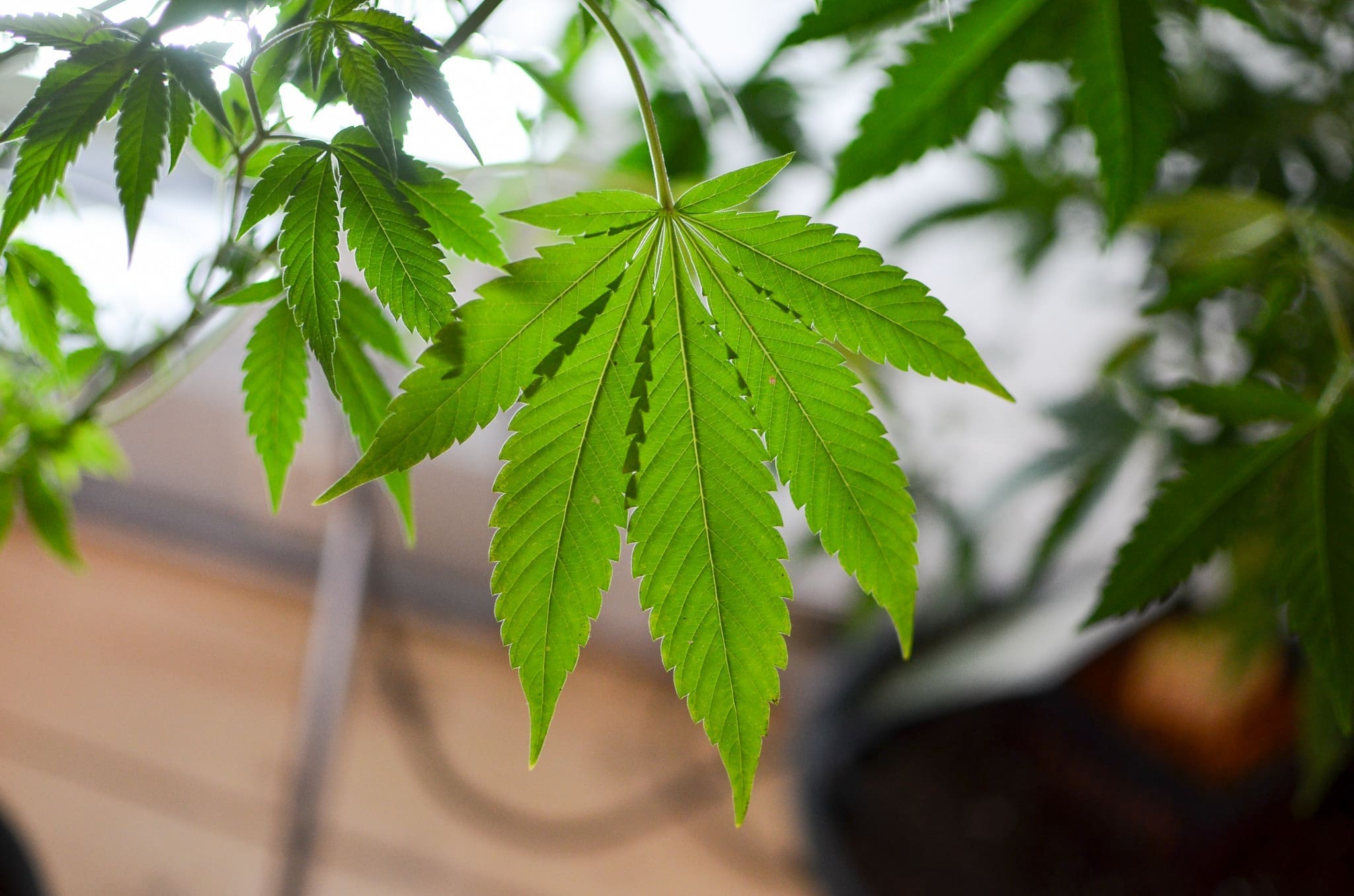featured
Tariffs And Visas Add To The Cannabis Industry’s Misery
Published
6 hours agoon

Tariffs And Visa Add To The Cannabis Industry’s Misery, squeezing profits, talent, and innovation nationwide.
The U.S. legal cannabis industry has been suffering over the last two years under an indecisive federal government — and now it’s getting squeezed from two unexpected angles: Tariffs and Visas add to the cannabis industry’s misery. For businesses and workers alike, what once looked like a budding success story is showing greater turbulence.
The first punch comes via international trade policy. Many cannabis-adjacent businesses — from vape cartridge manufacturers to packaging suppliers and cultivation equipment importers — rely heavily on overseas inputs, especially from China. Recent U.S. tariffs on Chinese goods — in some cases raising rates to 30–50% or more — have forced costs up, and the ripple is hitting weed-industry players hard.
RELATED: The VFW Stands Up For Marijuana

What makes this especially tough for cannabis businesses: margins are already razor-thin, regulatory burdens are high, and the domestic supply chain just isn’t built out. Switching suppliers takes time; finding U.S.-based manufacturers meeting regulatory compliance is even harder.
Now consider the human side of the workforce. The immigration and “visa” side of the equation rarely gets front-page attention in cannabis, but it’s quietly important. The federal government still classifies cannabis (marijuana) as a Schedule I controlled substance, despite many states legalizing it. That creates complications for foreign nationals trying to work in or invest in cannabis-related businesses.
For example, non-U.S. citizens on visas or applying for visas risk denial or revocation if they have past cannabis use, or if they’re working or investing in the cannabis industry—even when it’s legal in the state. This means companies would otherwise recruit international talent, or rely on global investment, may find restrictions.
RELATED: Cannabis Mogul Appointed Ambassador To Middle East Country
At the same time, broader visa policy changes are making the environment more uncertain. Recent shifts on H-1B visas, fees, and work permits are complicating cross-border mobility for skilled workers.
The combination of higher input costs and a more restrictive workforce/immigration pipeline is a double whammy for cannabis entrepreneurs. It means:
- Higher retail prices or slimmer margins
- Supply chain disruption (imports delayed, domestic alternatives still catching up)
- Caution around hiring international talent or tapping global investment due to immigration uncertainty
- Potential slowdown in growth or innovation as more resources are diverted to coping
For millennial cannabis consumers and industry watchers: yes, you might start seeing slightly steeper prices or less product innovation. And for workers and founders: borders, visas, and trade policy are no longer side conversations — they’re central to whether the business thrives.
In short: the cannabis boom isn’t immune to macroeconomics and immigration policy. If anything, it’s among the more vulnerable sectors, since it straddles imports, regulation, and workforce mobility all at once.

Author: mscannabiz.com
MScannaBIZ for all you Mississippi Cannabis News and Information.
You may like
-


Massachusetts Campaign To Roll Back Marijuana Legalization Law Is ‘On Track’ To Make 2026 Ballot, Spokesperson Says
-


Village Farms Introduces Industry-First, One-Way Aroma Valve in Cannabis Packaging
-


Ohio House Passes Bill To Remove Voter-Approved Marijuana Legalization Protections And Restrict Hemp Market
-


Sorting Robotics Becomes Cannabis Manufacturing’s First True Systems Integrator
-


Wisconsin Senators Hold Hearing On GOP Leader’s New Medical Marijuana Legalization Bill
-


Rhode Island Cannabis Chair Steps Down; Adult-Use Dispensary Awards Months Away
featured
Massachusetts Campaign To Roll Back Marijuana Legalization Law Is ‘On Track’ To Make 2026 Ballot, Spokesperson Says
Published
25 minutes agoon
October 22, 2025
A Massachusetts campaign says it is “on track” to collect enough signatures to put an initiative on the 2026 ballot that would roll back key aspects of adult-use marijuana legalization in the state. Meanwhile, some in the cannabis reform community are raising concerns about alleged instances where voters are being approached by signature gatherers with misleading information before signing petitions.
About a month after Massachusetts Attorney General Joy Campbell (D) cleared the campaign for signature gathering by certifying the recriminalization proposal, spokesperson Wendy Wakeman said the process is “going well” as they work to collect 100,000 signatures by a December 3 deadline.
“It’s on track,” Wakeman told Cannabis Business Times, while acknowledging that the “whole process—the initiative petition process—isn’t easy.”
In order to potentially qualify for the ballot, the campaign will need to submit an initial batch of 74,574 valid signatures. Internally, prohibitionist advocates have determined that they need to collect around 100,000 “because there are two different vetting processes that the signature sheets, the petitions, will go through,” and so it’s important to have that cushion for those that are potentially invalidated.
“The process at every step is political,” Wakeman said, arguing that while the voters decisively approved legalization at the ballot in 2016, there’s a sizable population of health professionals, parents and educators who are angling for a reversal of the law.
More people are feeling the “impact that the growth of marijuana use has had on the quality of life, the increase in DUI stops, the increase in child poisonings and in pet poisonings,” she said. “There’s a group that coalesces around the idea that we moved too far too fast with marijuana legalization, and that it’s not working well for Massachusetts.”
When the attorney general’s office completed its review of about 50 proposed 2026 ballot measures, it certified two versions the recriminalization campaign submitted.
Both would eliminate the state’s commercial adult-use market while maintaining patient access under the medical cannabis program and continuing to allow lawful possession of up to an ounce of recreational marijuana. “Version A” contains language that would also cap THC content for medical marijuana, while “Version B” omits that policy.
Wakeman says the campaign is pursuing the latter initiative without the cap. “We’re focusing on a petition that rolls back recreational pot stores and the legality of home-grown recreational marijuana,” she said.
Under initiative—titled “An Act to Restore A Sensible Marijuana Policy”—adults 21 and older could still possess up to an ounce of cannabis, only five grams of which could be a marijuana concentrate product.
Possession of more than one ounce but less than two ounces would be effectively decriminalized, with violators subject to a $100 fine. Adults could also continue to gift cannabis between each other without remuneration.
But provisions in the state’s voter-approved marijuana law that allow for commercial cannabis retailers and access to regulated products by adults would be repealed under the proposal.
Adults’ right to cultivate cannabis at home would also be repealed.
Meg Sanders, CEO of the Massachusetts-based Canna Provisions, told Cannabis Business Times that the question of legalization in the commonwealth has already been answered.
“I believe the voters showed up in 2016 and stated exactly what they wanted to see, which was a regulated cannabis market for adults,” she said. “I really hope we don’t have to ask and answer it again.”
“I think prohibition in any form is a real threat, and I think we have to keep our eye on the ball and not assume and not just go about our merry way. We’ll talk about it with our customers. We’ll make sure that they’re very aware of it. Please ask them to tell their friends. I just feel like we don’t know what the money behind this initiative is. We don’t understand exactly what’s backing this, but in my opinion, any threat to freedom is a threat that we need to look at.”
On Tuesday, the editor in chief of the Massachusetts-based marijuana news site Talking Joints Memo shared that a friend of his was recently approached by a person allegedly collecting signatures for the campaign who he said significantly mischaracterized the proposal by suggesting it would “stop criminalizing weed once and for all.”
Others in the industry replied to the LinkedIn post with similar experiences. But for what it’s worth, one person also flagged that they’ve heard of recent instances where petitioners have been collecting signatures for a ballot measure that isn’t actually certified.
Marijuana Moment reached out to the campaign for comment, but a representative was not immediately available.
Meanwhile, the head of Massachusetts’s marijuana regulatory agency recently suggested that the measure to effectively recriminalize recreational cannabis sales could imperil tax revenue that’s being used to support substance misuse treatment efforts and other public programs.
If enough of the initial signature submissions are validated, the proposal will then go before the legislature, with lawmakers having until May 6 to enact it into law or propose a substitute. If they do not, organizers will then need to collect 12,429 additional valid voter signatures to put the measure on the ballot.
Whether the cannabis measures make the cut is yet to be seen. Voters approved legalization at the ballot in 2016, with sales launching two years later. And the past decade has seen the market evolve and expand. As of August, Massachusetts officials reported more than $8 billion in adult-use marijuana sales.
—
Marijuana Moment is tracking hundreds of cannabis, psychedelics and drug policy bills in state legislatures and Congress this year. Patreon supporters pledging at least $25/month get access to our interactive maps, charts and hearing calendar so they don’t miss any developments.![]()
Learn more about our marijuana bill tracker and become a supporter on Patreon to get access.
—
Regulators are also working to finalize rules to allow for a new cannabis consumption lounge license type, which they hope to complete by October.
Separately, in May CCC launched an online platform aimed at helping people find jobs, workplace training and networking opportunities in the state’s legal cannabis industry.
The legislature’s Joint Committee on Cannabis Policy in August approved bills to provide employment protections for marijuana consumers and expand the state’s medical cannabis program, in part by adding post-traumatic stress disorder (PTSD) and opioid use disorder to the list of qualifying conditions.
State lawmakers have also been considering setting tighter restrictions on intoxicating hemp-derived products and a plan to allow individual entities to control a larger number of cannabis establishments.
Also in Massachusetts, legislators who were working on a state budget butted heads with CCC officials, who’ve said they can’t make critical technology improvements without more money from the legislature.
Meanwhile, Massachusetts lawmakers recently approved a bill to establish a pilot program for the regulated therapeutic use of psychedelics. And two committees have separately held hearings to discuss additional psilocybin-related measures.
Photo courtesy of Chris Wallis // Side Pocket Images.

Author: mscannabiz.com
MScannaBIZ for all you Mississippi Cannabis News and Information.
featured
Village Farms Introduces Industry-First, One-Way Aroma Valve in Cannabis Packaging
Published
1 hour agoon
October 22, 2025
[PRESS RELEASE] – DELTA, British Columbia, Oct. 22, 2025 – Village Farms International Inc. announced another Canadian first innovation from its Pure Sunfarms brand: the launch of a one-way aroma valve built directly into its dried flower packaging.
The one-way aroma valve is pressure-activated and designed to release the flower’s scent only when gently squeezed, while preventing air, moisture and contaminants from entering the bag. The innovation allows consumers to experience the natural aroma of the flower, without opening the package or compromising product integrity. Adapted from proven technology long used in premium coffee packaging, it represents the next evolution in cannabis packaging, bringing a sensory dimension never before available in the legal market.
“Smell is powerful – it connects us instantly to how we feel, shaping our choices in ways we don’t even think about,” said Orville Bovenschen, president, Village Farms Canadian Cannabis. “First, we gave people a window so they could see the flower. Now, we’ve added a valve so they can smell it. It might seem like a small thing, but in cannabis, it’s huge. Because it’s more than just aroma: It’s increased accessibility, as well as memory, emotion and experience all at once. These details matter because they bring everyone back to that first time we smelled and smoked great flower; that moment that stays with you. With this innovation, we’re proud to do that for all consumers.”
Following the success of the Pure Sunfarms brand’s window packaging, the aroma valve continues the Village Farms Canadian Cannabis mission to make cannabis shopping more accessible, informative and barrier-free for everyone. By giving consumers a way to preview aroma at the point of purchase, the company is helping people choose strains that match their preferences, using the same senses that guided cannabis selection long before legalization.
New pouches featuring Pure Sunfarms’ proprietary aroma-valve design will roll out across Canada as fresh inventory reaches stores through October, beginning with Pure Sunfarms ounces and later expanding to other top-selling SKUs.

Author: mscannabiz.com
MScannaBIZ for all you Mississippi Cannabis News and Information.
featured
Ohio House Passes Bill To Remove Voter-Approved Marijuana Legalization Protections And Restrict Hemp Market
Published
2 hours agoon
October 22, 2025
The Ohio House of Representatives has passed a bill that would make significant changes to the state’s voter-approved marijuana legalization law by removing several protections for consumers while also adding a series of new restrictions on hemp products that are intended to align the two sectors of the cannabis industry.
After moving through several House committees this week, with substantive amendments, the full chamber approved the legislation from Sen. Stephen Huffman (R) in a 87-8 vote on Wednesday.
While the measure previously passed the Senate in earlier form it will need to return to that chamber for concurrence, or go to a bicameral conference committee, before potentially heading to the governor’s desk.
Certain controversial provisions of the bill as passed by the Senate were scaled back by the House, but advocates are concerned that it would still make major changes to the marijuana law voters approved in 2023.
Rep. Brian Stewart (R), who has shepherded the legislation through the House, argued ahead of the floor vote that the legislation effectively reaches a “carefully crafted compromise” between lawmakers with differing perspectives on cannabis issues.
“This bill has been very difficult to wrangle, but most of our substantive bills usually are. Rather than being some kind of mushy muddle of weak sauce tie-breakers, this bill does what we all claim that we wanted to come to Columbus to do,” he said. “It tackles the issue head-on. It makes tough decisions. It respects and implements the feedback from residents and advocates across the affected industries. This bill wisely balances between Ohioans’ individual liberties, their safety, the financial wellbeing of our local communities and the need to protect the health and safety of Ohio’s children.”
Rep. Jamie Callender (R), who sponsored marijuana legalization legislation ahead of voters’ approval of the reform at the ballot, said the bill is “not perfect” but argued that lawmakers “have to act” to address intoxicating hemp and other pending issues.
“This is the revised code we’re writing,” he said. “I anticipate there will be numerous other bills on these topics in the near- and long-term future, as there should be… I’ll keep working with everyone to make it better.”
While its supporters have described it as a less heavy-handed approach compared to the original Senate bill, the measure would make substantive changes to the existing legalization law—with several provisions that advocates say directly contradict the will of voters and represent overreach on the part of lawmakers.
For example, the proposal would eliminate language in current statute providing anti-discrimination protections for people who lawfully use cannabis. That includes protections meant to prevent adverse actions in the context of child custody rights, the ability to qualify for organ transplants and professional licensing.
It would also recriminalize possessing marijuana from any source that isn’t a state-licensed dispensary in Ohio or from a legal homegrow. As such, people could be charged with a crime for carrying cannabis they bought at a legal retailer in neighboring Michigan.
Additionally, it would ban smoking cannabis at outdoor public locations such as bar patios—and it would allow landlords to prohibit vaping marijuana at rented homes. Violating that latter policy, even if it involves vaping in a person’s own backyard at a rental home, would constitute a misdemeanor offense.
Karen O’Keefe, director of states policies at the Marijuana Policy Project (MPP), said in a letter to House lawmakers on Wednesday that SB 56 as currently drafted “eliminates essential protections from the voter-enacted law and recriminalizes innocuous conduct that voters legalized.”
“Please reject this erosion of freedoms enacted by voters,” she said.
Unlike the Senate-passed version of the bill, the House substitute will send tax revenue from cannabis sales to local governments.
The legislation as amended by the House Judiciary Committee on Tuesday also adds new restrictions on the hemp market. With the exception of beverages, intoxicating hemp products would only be allowed to be sold in licensed hemp dispensaries.
Stores and breweries would be permitted to sell hemp-derived THC drinks, with new advertising restrictions meant to prevent appealing to youth. Products for on-site consumption would be limited to 5 mg of THC, but adults could buy take-home drinks containing up to 10 mg. More potent drinks could also be manufactured in Ohio, but only for sales to people outside the state.
There would also be a new $1.20 tax per gallon on hemp beverages created by the bill.
The measure was further amended earlier on Wednesday by the Finance Committee to clarify that people seeking to expunge prior misdemeanor marijuana possession offenses would not have to prove the specific amount of cannabis that they had. The change would also allow for the expungement of marijuana charges that were dismissed, and not just convictions.
The amendment additionally harmonizes cannabinoid beverage policy with existing laws relating to drinks and clarifies that penalties for selling marijuana, hemp drinks or cannabinoid products to an underage person would be the same regardless of the type of product.
The House vote on Wednesday comes weeks after the governor issued emergency rules prohibiting the sale of intoxicating hemp products for 90 days, with instructions to the legislature to consider permanent regulations. Last week, however, a county judge enjoined the state from enforcing that policy in response to a legal challenge.
“Frankly, the legislature had not taken action,” Gov. Mike DeWine (R) said in an interview published this week. “I’m still hopeful that the legislature will come in and actually take action.”
House Speaker Matt Huffman (R) commented recently on the relative lack of progress in advancing marijuana and hemp legislation since voters approved legalization at the ballot in 2023, noting substantive divides within the Republican caucus.
There are “folks who believe that marijuana should be legalized and regulated,” others “who believe that the hemp products should be on equal standing with everything that happened in the initiated statute and then “folks, like me, who are prohibitionists, who don’t think it should be legalized at all and it should be rare,” he said.
“I would say the prohibitionists have largely lost this discussion.”
—
Marijuana Moment is tracking hundreds of cannabis, psychedelics and drug policy bills in state legislatures and Congress this year. Patreon supporters pledging at least $25/month get access to our interactive maps, charts and hearing calendar so they don’t miss any developments.![]()
Learn more about our marijuana bill tracker and become a supporter on Patreon to get access.
—
Meanwhile, last month, the Ohio Department of Cannabis Control (DCC) filed new proposed rules to build upon the state’s marijuana legalization law, laying out plans to update regulations on labeling and packaging requirements.
The proposal came weeks after Ohio medical and adult-use marijuana sales officially crossed $3 billion, data from the state Department of Commerce (DOC) shows.
The state sold about $703 million in recreational cannabis in the law’s first year of implementation, according to DCC data.
In March, a survey of 38 municipalities by the Ohio State University’s (OSU) Moritz College of Law found that local leaders were “unequivocally opposed” to earlier proposals that would have stripped the planned funding.
Meanwhile in Ohio, adults as of June are able to buy more than double the amount of marijuana than they were under previous limits, with state officials determining that the market can sustainably supply both medical cannabis patients and adult consumers.
The governor in March separately announced his desire to reallocate marijuana tax revenue to support police training, local jails and behavioral health services. He said funding police training was a top priority, even if that wasn’t included in what voters passed in 2023.
Ohio’s Senate president has also pushed back against criticism of the Senate bill, claiming the legislation does not disrespect the will of the electorate and would have little impact on products available in stores.
Photo courtesy of Philip Steffan.

Author: mscannabiz.com
MScannaBIZ for all you Mississippi Cannabis News and Information.

Massachusetts Campaign To Roll Back Marijuana Legalization Law Is ‘On Track’ To Make 2026 Ballot, Spokesperson Says

Village Farms Introduces Industry-First, One-Way Aroma Valve in Cannabis Packaging

Ohio House Passes Bill To Remove Voter-Approved Marijuana Legalization Protections And Restrict Hemp Market

Sorting Robotics Becomes Cannabis Manufacturing’s First True Systems Integrator

Wisconsin Senators Hold Hearing On GOP Leader’s New Medical Marijuana Legalization Bill

Tariffs And Visas Add To The Cannabis Industry’s Misery

Rhode Island Cannabis Chair Steps Down; Adult-Use Dispensary Awards Months Away

How America Accidentally Legalized Lab Cannabis

New Hampshire Lawmakers Announce Plans For Marijuana, Psychedelics And Hemp Bills For 2026 Session

Metrc Announces In-Person Events in New York to Prepare Licensees For Track-and-Trace Implementation

Top Rhode Island Marijuana Regulator Steps Down Ahead Of Possible Campaign For Attorney General

Lifestyle Brand Cookies Launches in Brazil With Premium Wellness Products

Alcohol companies lobby Congress on cannabis drinks (Newsletter: October 22, 2025)

Millennials Are Spending Big on Luxury Travel

Ohio Lawmakers Advance Bill To Scale Back Voter-Approved Marijuana Law And Impose Hemp Regulations

Data Confirms Cannabis Is Safer Than Alcohol

American Council of Cannabis Medicine Unveils Major Industry Initiative to Expand Medical Cannabis Access

Scientists Develop New Class Of CBD Using A Common Kitchen Spice—Not Cannabis

Evidence About Burning Mouth Syndrome And Cannabinoids

Raw Garden Acquires ‘California Love’ to Grow Clean Cannabis Movement

Rhode Island Marijuana Officials Approve Timeline For Awarding New Dispensary Licenses

‘Rent-a-License’ Scheme Highlights New York Cannabis’s Track-and-Trace Problem

Alcohol Industry Steps Up Lobbying On Hemp Drinks As Congress Debates THC Ban

Cannabis Mogul Appointed Ambassador To Middle East Country

Alert: Department of Cannabis Control updates data dashboards with full data for 2023

Connecticut Appoints The US’s First Cannabis Ombudsperson – Yes there is a pun in there and I’m Sure Erin Kirk Is Going To Hear It More Than Once!

5 best CBD creams of 2024 by Leafly

Recreational cannabis on ballot for third time in South Dakota

EU initiative begins bid to open access to psychedelic therapies
New Study Analyzes the Effects of THCV, CBD on Weight Loss

Free delta-9 gummies from Bay Smokes

5 best autoflower seed banks of 2024 by Leafly

Discover New York’s dankest cannabis brands [September 2024]

May 2024 Leafly HighLight: Pink Runtz strain

Press Release: CANNRA Calls for Farm Bill to Clarify Existing State Authority to Regulate Hemp Products

5 best THC drinks of 2024 by Leafly

Local medical cannabis dispensary reacts to MSDH pulling Rapid Analytics License – WLBT

6 best CBD gummies of 2024 by Leafly

Curaleaf Start Process Of Getting Their Claws Into The UK’s National Health System – With Former MP (Resigned Today 30/5/24) As The Front Man

Horn Lake denies cannabis dispensary request to allow sale of drug paraphernalia and Sunday sales | News

5 best delta-9 THC gummies of 2024 by Leafly

Mississippi city official pleads guilty to selling fake CBD products

The Daily Hit: October 2, 2024

Nevada CCB to Accept Applications for Cannabis Establishments in White Pine County – “Only one cultivation and one production license will be awarded in White Pine County”

5 best THCA flower of 2024 by Leafly

Weekly Update: Monday, May 13, 2024 including, New Guide for Renewals & May Board meeting application deadline

6 best hemp pre-rolls of 2024 by Leafly

PRESS RELEASE : Justice Department Submits Proposed Regulation to Reschedule Marijuana
Trending
-

 California Cannabis Updates1 year ago
California Cannabis Updates1 year agoAlert: Department of Cannabis Control updates data dashboards with full data for 2023
-

 Breaking News1 year ago
Breaking News1 year agoConnecticut Appoints The US’s First Cannabis Ombudsperson – Yes there is a pun in there and I’m Sure Erin Kirk Is Going To Hear It More Than Once!
-

 best list1 year ago
best list1 year ago5 best CBD creams of 2024 by Leafly
-

 Business1 year ago
Business1 year agoRecreational cannabis on ballot for third time in South Dakota
-

 Business1 year ago
Business1 year agoEU initiative begins bid to open access to psychedelic therapies
-

 cbd1 year ago
cbd1 year agoNew Study Analyzes the Effects of THCV, CBD on Weight Loss
-

 Bay Smokes1 year ago
Bay Smokes1 year agoFree delta-9 gummies from Bay Smokes
-

 autoflower seeds1 year ago
autoflower seeds1 year ago5 best autoflower seed banks of 2024 by Leafly



